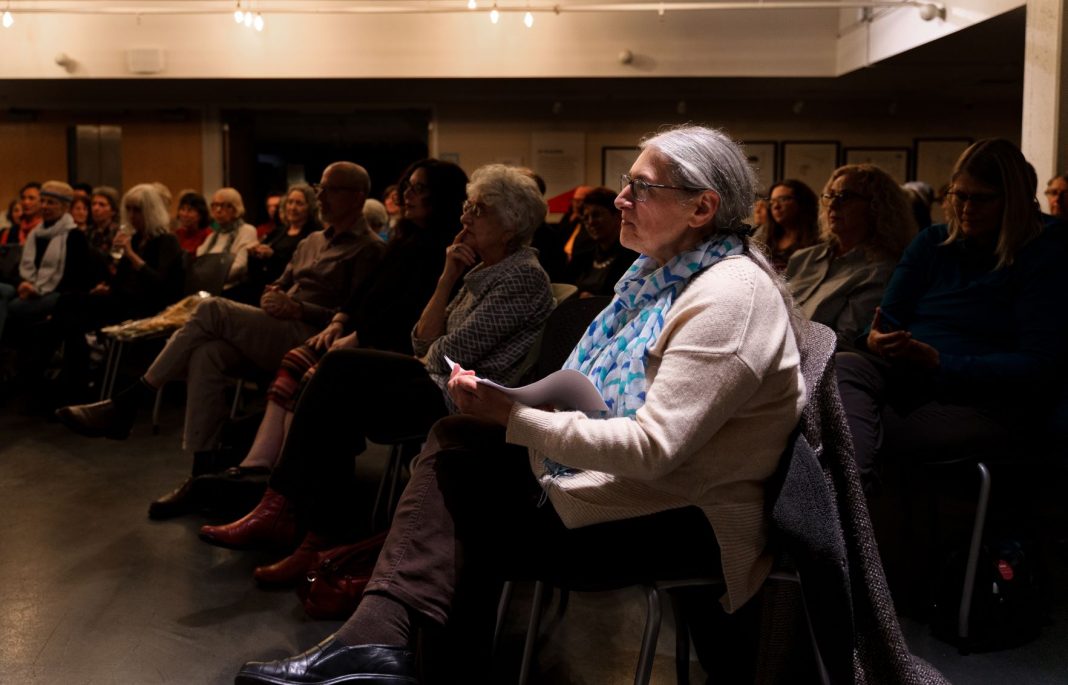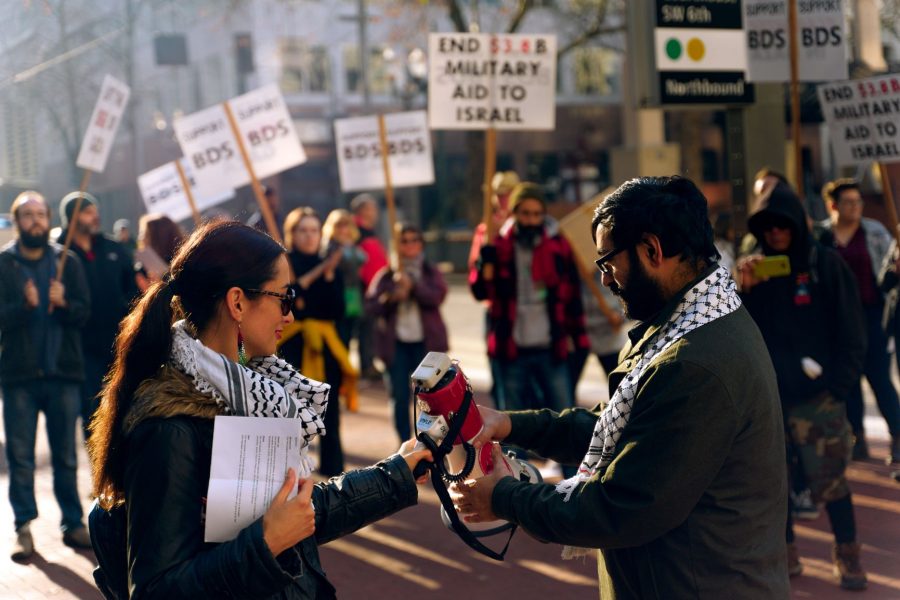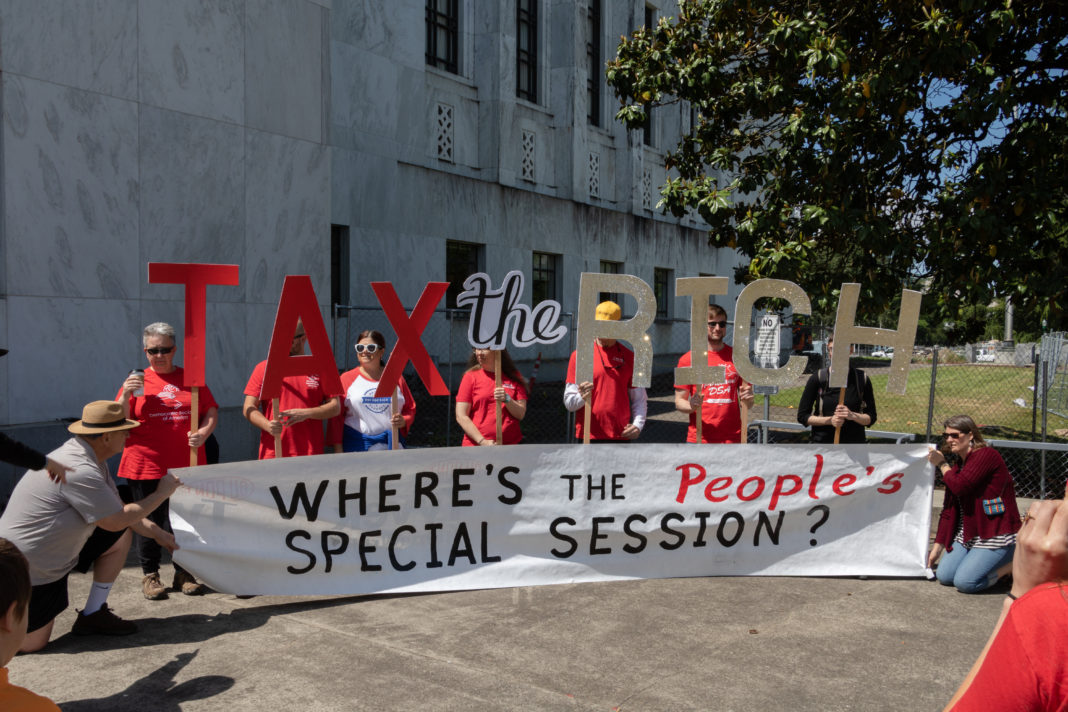Jewish authors interrogate their own identities
For the past two decades, audiences have gathered to hear the voices of Jewish writers in Oregon at the annual Oregon Jewish Voices event. The 20th anniversary of the event celebrated the joy and community as well as the turmoil of the modern Jewish experience and grappled with the question of what it means to be Jewish in the current day.
Held at the Oregon Jewish Museum and Center for Holocaust Education on Nov. 20, the event drew the largest crowd in its 20-year history. Formatted as a series of live readings from five Oregon authors, the evening was curated by local poet Willa Schneberg, who presented her own work as one of the five readers.
Schneburg noted the event’s interpretation of the term “Jewish author” is very loose. “Anyone who in some way self-identifies as Jewish is considered,” she said. Beyond that, Schneburg looks for authors who have published at least one book and reside in Oregon.
This year’s lineup featured people across the spectrum of what it means to be Jewish. The first author, Eric Flamm, resided in Israel for several years, eventually gaining citizenship and being drafted into the Israeli Defense Forces. He read sections from his new short story collection, Portland Zionists Unite! The six-story collection mirrors the range of the storytelling evening itself, featuring different narrators with different conceptions of Jewish identity and Israel.
Flamm asked the audience “Jewish identity: what is it based on? Yes there’s food, traditions, holidays, but there is also Israel. This book asks the question, what do we mean when we say Israel?”
Other authors held a different conception of Jewish identity, not at all based on Israel. A. Molotkov moved to Oregon from Russia in the ‘90s.
He read from his upcoming memoir, A Broken Russia Inside Me. He relayed the story, gathered from relatives and archives, of the biological father he never met. Molotkov’s father, who is fully Jewish, was denied access to education and employment due to the anti-Semitism of Stalinist Russia and eventually was driven to take his own life.
“I only learned that he committed suicide several years ago,” Molotkov said. “But he is the reason I am here today.” The anti-Semitism faced by his father led Molotkov’s mother to change her children’s surnames, eventually allowing Molotkov the opportunity to immigrate to America.
Grappling with the generational trauma of the Jewish experience was a major theme of the evening. The final reading of the evening, from author Sabena Stark, brought many in the audience to tears. Stark’s story, “The Fire Drill,” framed an exploration of her relationship with her so-called “reborn-after-the-Holocaust” mother around a particular story from Stark’s childhood. The childhood story began with Stark describing her kindergarten school and her cruel teacher who would beat and shake her when Sabena was too loud or friendly.
Stark then shifted to a narrative of her mother’s experience in the Holocaust: running into Russia to avoid the advancing Nazi front, having a child with a young Russian soldier, her and the child being caught by the Nazis and taken to Auschwitz, where the child was immediately killed. “I came to think of this daughter as my invisible perfect sibling…I remained a stranger that wanted something from her,” Stark said.
“The Fire Drill” ended its narrative with 6-year-old Sabena acting out during a fire drill and being shaken by her teacher, her mother witnessing the event from across the street and sprinting out her apartment and grabbing the teacher by the throat and saying, “Never touch my daughter again.”
Stark closed her reading with the line, “Although I was never the favorite child, on that day [my mother] held her nightmare by the neck and saved her little girl.”
Stark’s final comment of the evening was, “I think that it’s an important event for the whole community—not just the Jewish community.”
The event will be back next fall, featuring Schneberg and a fresh lineup of Jewish-identifying authors with words to share.






